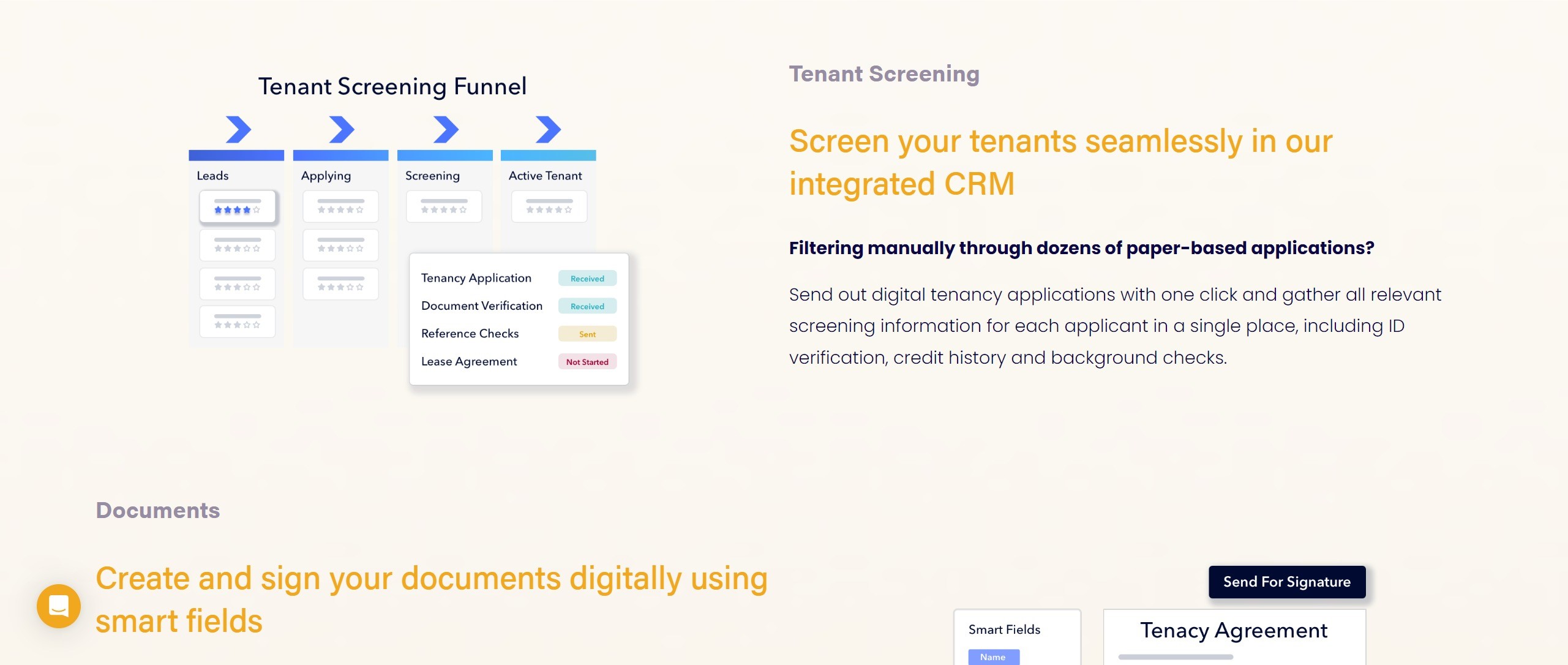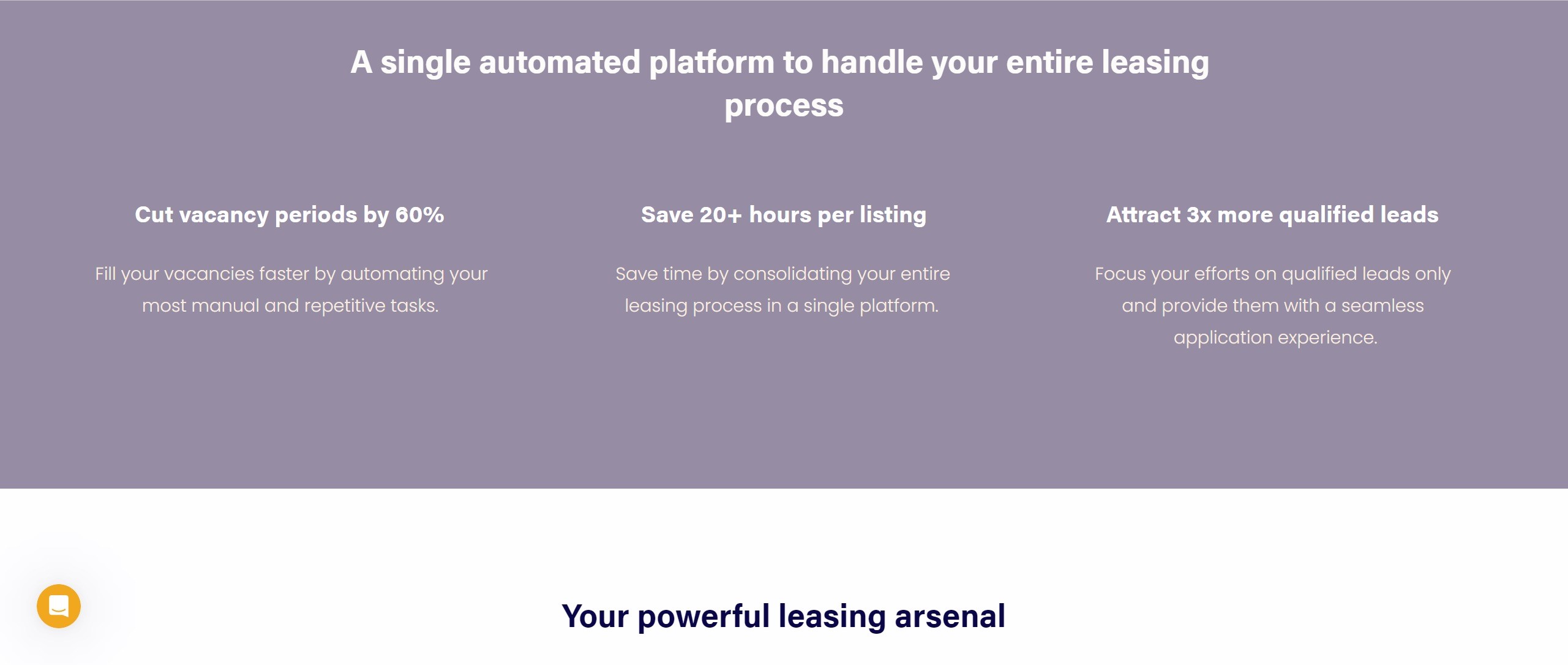
As property managers and landlords seeking to achieve home rentals success, understanding tenant insights and rental property analytics is key. Diving into tenant behavior, preferences, and tenant screening processes can unlock new avenues for effective strategies and creating more profitable rental property investments, paving the way for a thriving rental business. Technological advancements have made rental market analysis easier, with property management software becoming instrumental in facilitating these insights. One such initiative is by Leasey.AI, which offers maintenance request solutions and tenant communication platforms as part of its software suite.
Executed correctly, this knowledge of tenant screening criteria and rental market trends can facilitate dynamic pricing, improved tenant retention, and optimized marketing efforts. The most pertinent question remains, however, how can tenant insights drive more profitable home rentals and how does one utilize property management tools to their advantage?
Firstly, in property management, understanding tenants' needs, preferences, and rental market segmentation is tantamount to success. By unlocking tenant insights and implementing proper tenant screening processes, property managers and landlords can tailor their services to meet those requirements. This opens the door to greater tenant satisfaction, ultimately leading to longer lease terms and increased profitability.
For instance, landlords may discover through tenant satisfaction metrics that tenants are particularly sensitive to promptness in maintenance services. Recognizing this, implementing a comprehensive and efficient maintenance management system (such as those offered as part of Leasey.AI's software suite) can make your rental properties more desirable, leading to lower vacancies and higher rental rates. In a report by Iproperty Management, they highlighted that prompt maintenance response can improve tenant retention by up to 30%.
Customizing services based on tenant insights and rental property ROI analysis is a viable way of increasing not just tenant satisfaction but also the profitability of your rental business. If tenants value green living, for example, introducing eco-friendly initiatives could make your property stand out from the rental market competition, possibly enabling you to charge higher rent.
Property management systems have been a game-changer in the rental business industry, featuring comprehensive tools that enhance efficiency and automation for numerous tasks, such as managing tenant applications and tracking rent payments. The true prowess of these systems lies in their ability to facilitate deeper understanding of tenants, by compiling and analyzing tenant behavior and feedback through property management metrics.
Through these tenant analysis tools, landlords and property managers can identify patterns, anticipate potential issues, and improve overall service. For instance, property managers that can efficiently handle tenant maintenance requests using property management KPIs are likely to be appreciated by tenants, promoting higher tenant retention rates and consequently, increased profitability. This is affirmed by a 2020 study by Buildium which found that efficient property management leads to an increase of up to 12% in profitability.
Property management software not only provides retrospective analysis but can also yield predictive insights and rental income forecasting that can be instrumental in strategic decision-making processes. Such software readily links property managers to crucial resources like managing multiple rental properties efficiently and implementing comprehensive tenant screening processes. By having access to such insights, landlords and property managers can stay ahead of rental market trends, making their home rentals more profitable and efficient.

Data derived from tenant behavior and lease agreement terms offers a colossal source of insight for landlords and property managers. Unraveling this information from your rental business gears can unlock visionary understanding of real estate market trends. With this treasure trove of information, you can refine your property management strategies and tailor your services to satisfy your tenants.
In 2021, real estate management platforms became instrumental in capturing and analyzing tenant information. This technology nurtures a harmonized relationship between landlords and tenants, opening a seamless conversation to identify areas of improvement in your rental operations. Thus, the weave of active understanding born from tenant behavior aids in creating a property investment that thrives in the market.
To enhance the traditional methods of manual record keeping, landlords and property managers are incorporating cloud-based landlord systems into their operations. Software solutions like Yardi and Buildium have proven effectiveness in reviewing and responding to tenant concerns and behavior, thus positioning rental businesses at an advanced standpoint in the market.
Efficient management of maintenance schedules is pivotal for the success of all home rental businesses. The advent of property management system software has presented effective solutions for maximizing routine maintenance schedules. This comprehensive approach not only helps in the upkeep of your rental properties but also ensures that your tenants experience a well-maintained living environment.
In a 2020 research by SoftwareReviews, property management solutions such as Quicken Home & Business and SimplifyEm were praised for their features that allow landlords to schedule and track maintenance tasks. When applied efficiently, these software solutions have the potential to reduce maintenance costs and increase tenant retention rate by up to 30%.
With more property managers transferring their operations to cloud-based rental property software, the platform offers numerous benefits. For one, property management software enables landlords to manage maintenance tasks remotely. The software also includes tenant review features that capture tenant satisfaction levels, which justifies its continued adoption across the property rental industry.
Unlocking tenant insights effectively starts with strategy, and for many property managers, that strategy is grounded in Quicken Reports. The accurate processing and analysis of these reports offers keen insights into tenant behavior, aiding in the creation of a harmonious relationship akin to a well-choreographed opera. Configuring divergent pieces of tenant data and bringing them together into a single coherent strategy distinguishes successful home leasing from its less triumphant counterparts.
Quicken Reports go a step beyond usual bookkeeping by providing an in-depth summary of all financial transactions, revenues, and expenditures incurred during property management. Tenant unpaid dues, recurring rent deposits, property tax details, and depreciation values are some of the vital elements that are assembled to create a comprehensive performance report. This data forms the essence of great opera-like performances in home leasing.
Unlocking tenant insights doesn't stop at straight number-crunching. A closer look at financial patterns can reveal a wealth of valuable insights about tenant payment behavior. For instance, delayed rent payments or recurring maintenance charges often point towards issues beyond just finance. Such evidence necessitates proactive communication and tenant engagement to ensure smooth operations in home leasing.
Transforming rental prospects into tenants necessitates a robust lead conversion strategy. One prime component in this puzzle is the effective use of management software. Software reviews have proven to be an indispensable tool for property managers, providing tangible metrics to compare the efficiency, functionality, and user-friendliness of various property management applications. Harnessing the power of these reviews can guide the selection of the right software, thereby streamlining the home rentals process.
A management software review, at its core, offers an objective analysis of a product's features, usability, and cost-effectiveness. The review provides an insight into the experience of others who've used the software, highlighting its strengths and shortcomings. Consequently, property managers will be better equipped to make informed decisions and find an application that aligns with their specific home rental management needs.
The selection of the right management software plays a pivotal role in devising a successful lead conversion strategy. This tool can fast-track the home renting process by managing and organizing vast volumes of data involved. Tenants' payment records, lease agreements, and maintenance requests are just a few examples. Hence, careful examination of management software reviews facilitates effective decision-making, encouraging better tenant management and efficient home rentals.

| Aspect | Number of Properties | Tenant Satisfaction Rating | Renewal Rate | Average Monthly Rental Income | Vacancy Rate |
|---|---|---|---|---|---|
| Location | 100 | 4.5/5 | 85% | $1500 | 5% |
| Amenities | 75 | 4.2/5 | 80% | $1700 | 7% |
| Property Condition | 90 | 4.3/5 | 82% | $1600 | 4% |
| Lease Terms | 85 | 4.0/5 | 75% | $1550 | 8% |
| Communication | 70 | 4.4/5 | 88% | $1450 | 6% |
| Maintenance | 80 | 4.1/5 | 78% | $1620 | 6% |